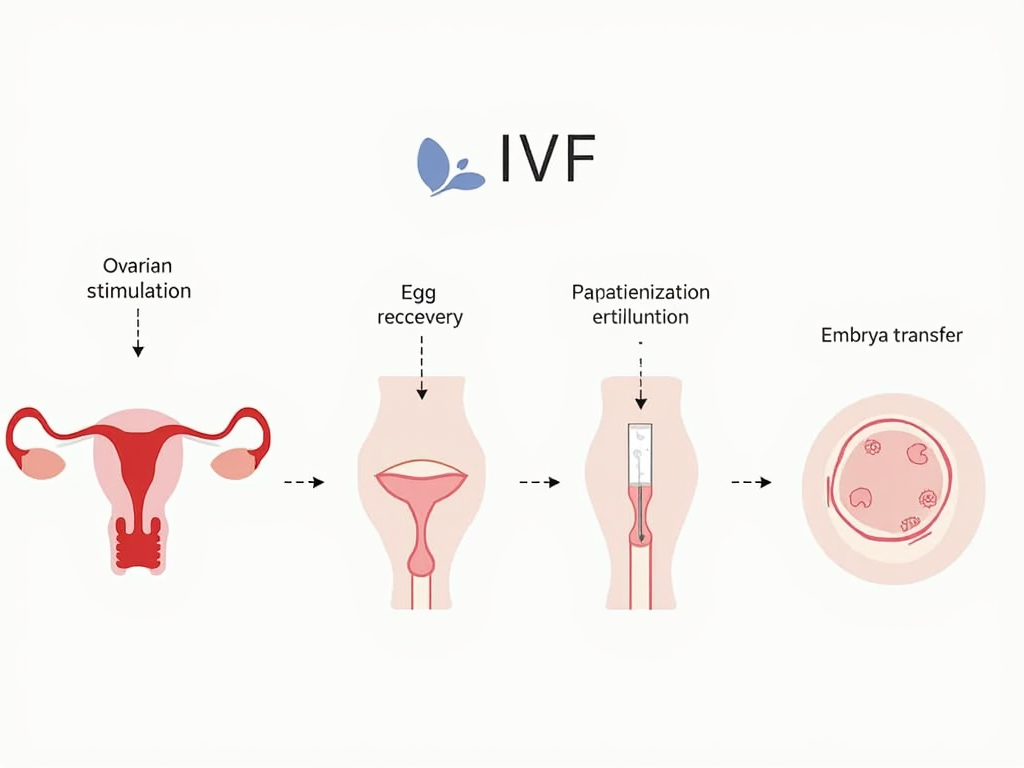Understanding Infertility: What’s Behind the Struggle
May 1, 2025, 7:34 a.m.
Infertility affects millions of people worldwide, and understanding its causes and the emotional journey can be overwhelming. This article explores the complexities of infertility, offering insights into its causes, treatments, and the emotional toll it takes.
What is Infertility?
Infertility is defined as the inability to conceive after one year of unprotected intercourse. It affects both men and women and can be a challenging journey for couples trying to start a family. According to the World Health Organization, approximately 15% of couples worldwide experience infertility.

Causes of Infertility
Infertility can be caused by a variety of factors, and sometimes the cause remains unknown.
-
Male Factors: These include low sperm count, poor sperm motility, or abnormal sperm shape. Lifestyle factors like smoking, excessive alcohol consumption, and certain medications can also affect male fertility.
-
Female Factors: Common causes include ovulation disorders, blocked fallopian tubes, endometriosis, and age-related decline in egg quality. Hormonal imbalances and uterine abnormalities can also play a role.
-
Unexplained Infertility: In some cases, despite thorough testing, the cause of infertility remains unknown. This can be particularly frustrating for couples seeking answers.
The Emotional Journey
Dealing with infertility can be an emotional rollercoaster. Many couples experience feelings of sadness, frustration, and even guilt. The constant cycle of hope and disappointment can take a toll on mental health and relationships.
-
Personal Insight: Imagine the heartbreak of seeing another negative pregnancy test after months of trying. It's a pain that many couples face silently, often feeling isolated in their struggle.
-
Support Systems: It's crucial to have a strong support system, whether it's through friends, family, or support groups. Counseling and therapy can also provide valuable tools for coping with the emotional aspects of infertility.
Fertility Treatments
There are various fertility treatments available, and the best option depends on the individual's circumstances.
-
Overview of Treatments: Treatments range from medication to assist with ovulation to more advanced procedures like intrauterine insemination (IUI) and in vitro fertilization (IVF).
-
Focus on IVF: IVF, or in vitro fertilization, is one of the most well-known fertility treatments. It involves stimulating the ovaries to produce multiple eggs, retrieving those eggs, fertilizing them with sperm in a lab, and then transferring the resulting embryos into the uterus.
-
Other Treatments: Other options include ovulation induction, where medication is used to stimulate ovulation, and IUI, where sperm is directly inserted into the uterus during ovulation.

Navigating IVF: A Comprehensive Guide
IVF can be a complex and emotionally taxing process. Here's a step-by-step guide to understanding how it works:
-
Ovarian Stimulation: Medications are used to stimulate the ovaries to produce multiple eggs.
-
Egg Retrieval: Once the eggs are mature, they are retrieved from the ovaries using a minor surgical procedure.
-
Fertilization: The retrieved eggs are fertilized with sperm in a laboratory to create embryos.
-
Embryo Transfer: One or more embryos are transferred into the uterus, where they may implant and result in a pregnancy.
-
Success Rates: IVF success rates vary depending on factors like age, the cause of infertility, and the quality of the embryos. On average, the success rate for IVF is around 30-40% per cycle for women under 35.
-
Emotional and Financial Aspects: IVF can be expensive and is not always covered by insurance. The emotional toll of the process, including the waiting periods and potential for disappointment, should also be considered.
Best Fertility Treatments for Women
The best fertility treatment for a woman depends on her specific situation. Here are some common options:
-
Ovulation Induction: For women who do not ovulate regularly, medications like Clomid can help stimulate ovulation.
-
IUI: This is often used for couples with unexplained infertility or mild male factor infertility. It involves placing sperm directly into the uterus during ovulation.
-
IVF: For more complex cases, such as blocked fallopian tubes or severe male factor infertility, IVF may be the best option.
-
Personalized Approach: It's essential to consult with a fertility specialist to determine the most appropriate treatment based on individual circumstances.

Conclusion
Infertility is a complex and often heartbreaking journey, but understanding its causes and the available treatments can provide hope. Whether through medication, IUI, or IVF, there are options available to help couples achieve their dream of starting a family. Remember, you're not alone in this struggle, and seeking support from loved ones and professionals can make a significant difference.